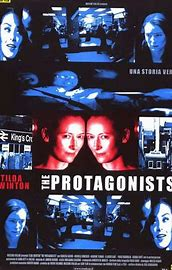The James Bond “spoof” Casino Royale, with its five credited
directors, is frequently almost aggressively shoddy, with dashed-off special
effects, a lurching plot, and little or no attempt to impose tonal consistency,
which just sometimes, if you manage to orient your head the right (or should
that be the wrong) way can seem like a loose-leaf radicalism. With multiple characters
identified at various times as James Bond, the film suggests that the label and
the myth already outpace the reality, and that as such the right of entry to the
role of Bond might transcend calculations of age or gender or basic competence
(in this respect the real world might still only partially be catching up, with
the vague buzz over whether the character might next time be incarnated by
something other than a white man). In tune with that philosophy, the film often
feels almost randomly assembled: for example Peter Sellers is seen in the
opening moments before disappearing for the best part of an hour, then later gets dispatched so offhandedly that one could miss it (lack of actorly cooperation
apparently contributed to the choppiness, but maybe it’s all for the best);
Woody Allen has a couple of disconnected scenes early on before popping up to
dominate the end stretch; it’s a film where one scene might feature Oscar
winners like John Huston and William Holden, and another might be given over to
TV-level shtick delivered by the likes of Ronnie Corbett. The climactic showdown
has the Americans arriving in the form of Cowboys and Indians, and the French
as led by Jean-Paul Belmondo, and George Raft in a tuxedo delivering a single
line, and two clapping seals, and Allen hiccupping up blue clouds, and it’s a
mess that’s frankly very little fun to watch, but one truly wonders if anyone
ever seriously imagined that it would be, or (more probingly) whether in truth watching
Bond films has ever been. Burt Bacharach’s indelible score does its best to impose
a buzzy sense of unity, but of course it could never be enough.




